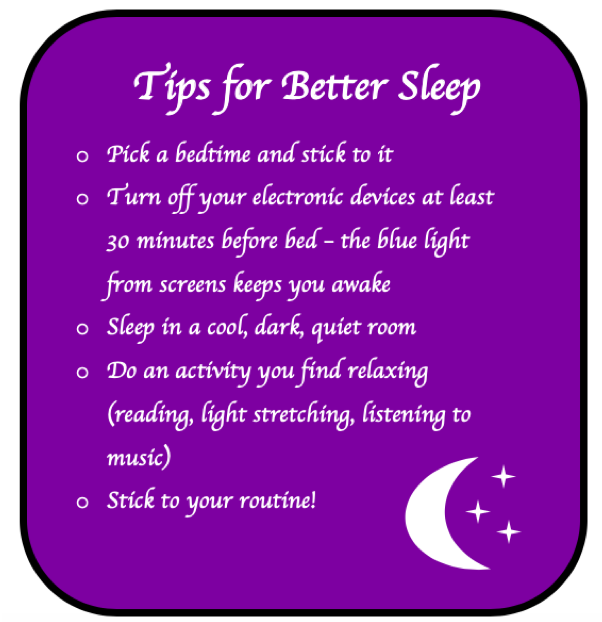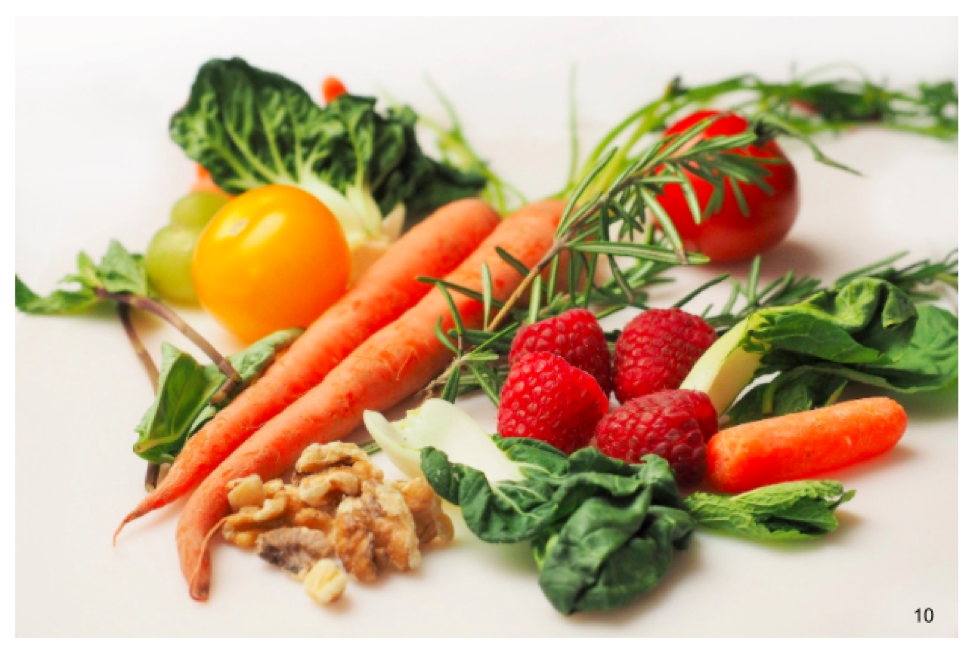Doctors constantly talk about how our bodies handle stress. We like to use stress as a term that describes the amount of work your body is doing. For example, if you are sick with a cold, that is a form of stress. It puts a workload on your body that you must then recover from.
So how do we recover from stress? Well, that depends on where the stress comes from.
Stress can be both physical and mental, and most stress causes at least a little bit of both types. And so, when it comes to recovering from stress, you have to manage both the physical and the mental effects.
The challenge is figuring out how to approach stress, which is a complex problem. You wouldn’t handle the stress put on your body by the flu like you would handle the stress from a long row or run, for example.
It is the stress that creates the reaction from your body to fix the problem. What you do to assist your body’s natural responses can make a huge difference in the outcome. Fail to recover, and you could end up feeling tired, injured, or sick.
For example, when you exercise, you push your body to its limits. This stress triggers a response to build bigger muscles and a stronger heart so that you can better handle exercise. If you don’t take time to recover between workouts, you fail to achieve those adaptations.
Recovery is thus a very important part of combating stress, ensuring both physical and mental wellbeing, and improving physical performance!
And the truth is, some recovery strategies simply work better than others, and others don’t really work at all! Let’s talk about the strategies that have been shown to work so that you can manage your stress.
Sleep!
Your body repairs itself when you are asleep. And yet, many athletes miss out on the quality sleep they need to recover from life’s daily stressors AND the stress of their workouts.

It may sound simple, but getting enough sleep has so many positive effects that are often overlooked. Getting enough sleep restores your muscles, improves your mood, boosts your immune system, and assists learning and memory formation (1).
Perhaps you know the feeling of not having enough quality sleep. When we are constantly tired from lack of rest, we can feel disoriented, confused, easily annoyed, and just downright weak (1).
Most people run into problems when they try to do too much and cut down on their time sleeping to make up for it. Cutting out sleep means more than just being tired. You lose the positive effects on your mental wellbeing too, as well as failing to properly recover from the stress you received from daily worries and exercise.
Everyone should really make an effort to sleep between 7 to 9 hours every night to ensure you are properly recovered and prepared for the next day. For youth athletes, professionals actually recommend you aim for a minimum of 8 hours of sleep (1).
To make it easier for yourself to get to sleep at an appropriate time, try building a sleep routine. The purpose of a sleep routine is to create a ritual that you can use to unwind and relax so that you can get in bed ready to sleep instead of lying there with your eyes closed hoping you eventually just fall asleep. You’ll also find that it will be easier to fall asleep if you keep a regular bedtime - your body will naturally begin to feel sleepy if you train it to fall asleep at a certain time of day! (1, 2)
Make your sleep routine personalized to you. For example, it can be something simple like brushing your teeth, washing your face, and then listening to some music you find relaxing. Personally, I like to end my day with some light stretching before I get into bed to help release whatever tension I may have been carrying with me throughout the day. Others may like to read a few pages from their favorite book or magazine. The key is finding a routine you like and sticking to it! Soon, your body will associate this pattern with sleep, and you’ll find it easier to fall asleep once you get into bed. (2)
There are also a few things you can do to make sure your bedroom is designed to help you fall asleep and stay asleep.
For starters, your ideal bedroom should be slightly cool, quiet, and completely dark. Consider your current bedroom setup and determine if there are any sources of light or noise you can block out. (1, 2)
Also, I would advise you to stop using any electronic devices 30 minutes before bed. The blue light from the LEDs in TVs, phones, and gaming devices disrupts the hormone melatonin from making you sleepy (2). This may make it difficult to fall asleep.
Dial-In Your Nutrition
In previous blog posts, I emphasized the importance of eating and drinking right to ensure proper energy levels and recovery from workouts. If you haven’t read those yet, definitely check those out!
Instead, I want to touch briefly on the concept of antioxidants. Antioxidants are a fun buzzword you hear thrown around, but may not totally know what they do or where they come from.
Antioxidants are molecules with protective qualities for our cells. They combat what scientists call “reactive oxygen species”, which are like modified oxygen molecules that can damage our cells if left unchecked. Reactive oxygen species are created as a result of stress in the body, whether it be from disease, exercise, or even mental stress like anxiety. So, you can kind of think of “reactive oxygen species” as stress in a chemical form. (3, 4)
Too much of this chemical stress can lead to inflammation. While inflammation is helpful in short-term situations, like when you have a cold or even cut your finger, having inflammation for long periods of time may lead to the development of more severe health conditions. These include heart disease, arthritis, and health problems (3, 4).
This is why recovery is super important to talk about, and your diet is an excellent and simple solution to help lower your body’s stress levels!
Though your body has built-in antioxidants, you get a lot of support from the antioxidants found in your diet. Some of the more notable ones include Vitamin C, Vitamin E, and beta-carotene. Our bodies use a whole bunch of other compounds and even minerals like zinc to protect our bodies from stress. (3)

Image by Deborah Breen / Pixabay.
It is also really easy to find sources of antioxidants because they are generally what give fruits and vegetables their colors! For example, beta-carotene is found in orange foods (carotene sounds like carrots, right?). This is an excellent reminder to make sure you’re eating plenty of colors in your diet!
Practice Mindfulness
Between academics, rowing practice, and the general craziness of the world, it is easy to become overwhelmed at times.
When you are flooded with worries, it is important to take care of yourself by practicing some mindfulness.
In general, mindfulness is about slowing things down, especially when the world seems to be accelerating way too fast. When we’re overcome by worry and anxiety, sometimes we lose sight of the bigger picture of life, and as a result, miss out on the daily joys we may experience. (5)

Image by Ralf Kunze / Pixabay
Mindfulness is a strategy used to focus on ourselves and strengthen our mental wellbeing, all while lowering our stress. Unlike sleep and nutrition, mindfulness will not make your legs feel less sore after a workout. However, the point of mindfulness is to reinforce the benefits we receive from rest and a proper diet! (1)
Now, I will not pretend to be a sage or an expert in meditation, but I still have some wisdom to share when it comes to mindfulness practices.
Focus on Breathing
The key to meditation and the relaxation that follows lies in your breathing.
An easy and simple way to add a little mindfulness to your daily life is to just sit down, close your eyes, and breathe deeply and slowly.
By doing so, you can relax some tension that may have been built up from the day’s stress. Breathing deep and slow will lower your heart rate and blood pressure, bringing you a sense of calm (5). Focus only on your breathing, inhaling and exhaling through your nose. Try this for about 5 minutes, and see how you feel.
Yoga and Meditation
Yoga combines a little bit of exercise in the form of stretching with the slow, deep breathing of meditation.
Yoga is an excellent way to relax while also improving your mobility and flexibility, which are key to your success in rowing and preventing injuries. The benefits of yoga have been studied extensively, and it has been shown to have a positive effect on improving health outcomes and lowering stress. (6)
However, yoga is a skill, and to learn a skill, you need a teacher. Thankfully, there are a lot of free online resources you can use to try some yoga. USRowing put together 5 simple yoga poses that you can easily learn here (7). As an athlete and rower myself, I recommend checking out “Sara Beth Yoga” on YouTube. I personally think her videos are simple and easy to follow, and she has a variety of videos to choose from.
Take a Walk Outside
Forest Bathing, also known as the art of Shinrin-Yoku, originates in Japan and is the practice of walking through and enjoying nature to reduce stress (8, 9).

Image by Ber van ‘t Hul / Pixabay
It seems kind of farfetched, but there are some studies that show its positive benefits of lowering stress, improving mood, and increasing your energy levels. More research is needed to determine the extent of those benefits, though. (8)
This does serve as a reminder to go outside and get some fresh air! Getting outside, especially during these times, is important to your physical and mental wellbeing. Take some time to go to the park and enjoy the “green spaces” we have throughout the city if you can.
Can’t make it to the park? That’s okay. Any activity that gets you outside for a time will benefit your mental wellbeing, even if it is just as simple as taking the dog for a walk. Just do so safely!
Making Small Changes
The worst thing I can do is give a stressed-out person more things to do.
Just like everything else I’ve talked about in my posts, the best way to make positive changes in your recovery and stress levels is to take small steps. In my opinion, I think the biggest immediate benefit will come from adjusting your sleep, so I would start with that. Additionally, I understand that it may seem that this advice is almost too simple. Sleep more, eat colorful foods, and take some time to breathe? Yeah, I know it’s simple, BUT IT WORKS.
As a rower and a student myself, I understand the problems of balancing life, sport, and school or work. My stressors are different from yours, but I’ve found that by focusing on my sleep, nutrition, and by practicing some mindfulness, I am able to bounce back from whatever life hits me with. Try these strategies out for yourself and take note of how they make you feel physically and mentally. It’ll make a huge impact on your life both on and off the water!
References
1. Swisher, Anna. 2020. Top Recovery Techniques for Athletes - Dr. Anna Swisher. USRowing Webinar Series. https://www.youtube.com/watch?v=ZSD-Ax71WaI.
2. Healthy Sleep Habits. 2017. The American Academy of Sleep Medicine. http://sleepeducation.org/essentials-in-sleep/healthy-sleep-habits.
3. Antioxidants. 2020. Department of Health & Human Services, State Government of Victoria, Australia. https://www.betterhealth.vic.gov.au/health/healthyliving/antioxidants#:….
4. Gautam, M., Agrawal, M., Gautam, M., Sharma, P., Gautam, A. S., & Gautam, S. 2012. “Role of antioxidants in generalised anxiety disorder and depression”. Indian journal of psychiatry, 54(3), 244–247. https://doi.org/10.4103/0019-5545.102424.
5. Benefits of Mindfulness. 2020. Harvard Health Publishing. https://www.helpguide.org/harvard/benefits-of-mindfulness.htm#:~:text=I….
6. Field, Tiffany. 2016. “Yoga Research Review”. Complement Ther Clin Pract., 2016 Aug;24:145-61. doi: 10.1016/j.ctcp.2016.06.005. Epub 2016 Jun 16. https://www-sciencedirect-com.libproxy.temple.edu/science/article/pii/S….
7. Latz, Grace. 2015. Five De-Stressing Post-Holiday Yoga Poses. USRowing. https://usrowing.org/sports/2016/10/24/10124_132107092763883164.aspx.
8. Antonelli M, Barbieri G, Donelli D. “Effects of forest bathing (shinrin-yoku) on levels of cortisol as a stress biomarker: a systematic review and meta-analysis.” Int J Biometeorol. 2019;63(8):1117-1134. doi:10.1007/s00484-019-01717-x. https://pubmed.ncbi.nlm.nih.gov/31001682/.
9. Li, Qing. 2018. ‘Forest Bathing’ Is Great for Your Health. Here’s How to Do It. Time Magazine. https://time.com/5259602/japanese-forest-bathing/.
Images
10. “Vegetables”. Dbreen. https://pixabay.com/photos/vegetables-carrot-food-healthy-1085063/
11. “Balance”. Realworkhard. https://pixabay.com/photos/balance-meditation-meditate-silent-110850/
12. “The Road”. Burtvhul. https://pixabay.com/photos/the-road-beams-path-forest-nature-815297/